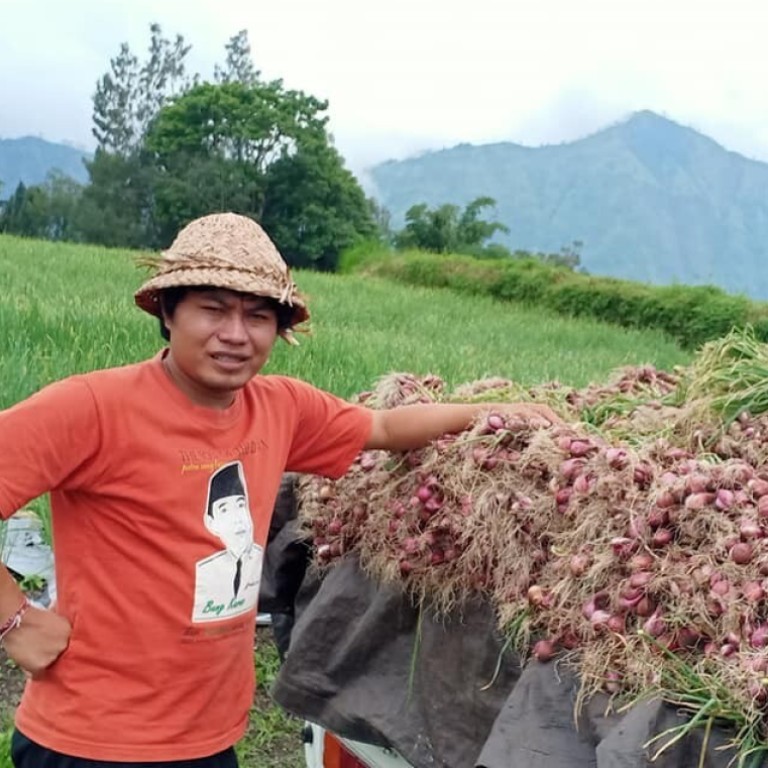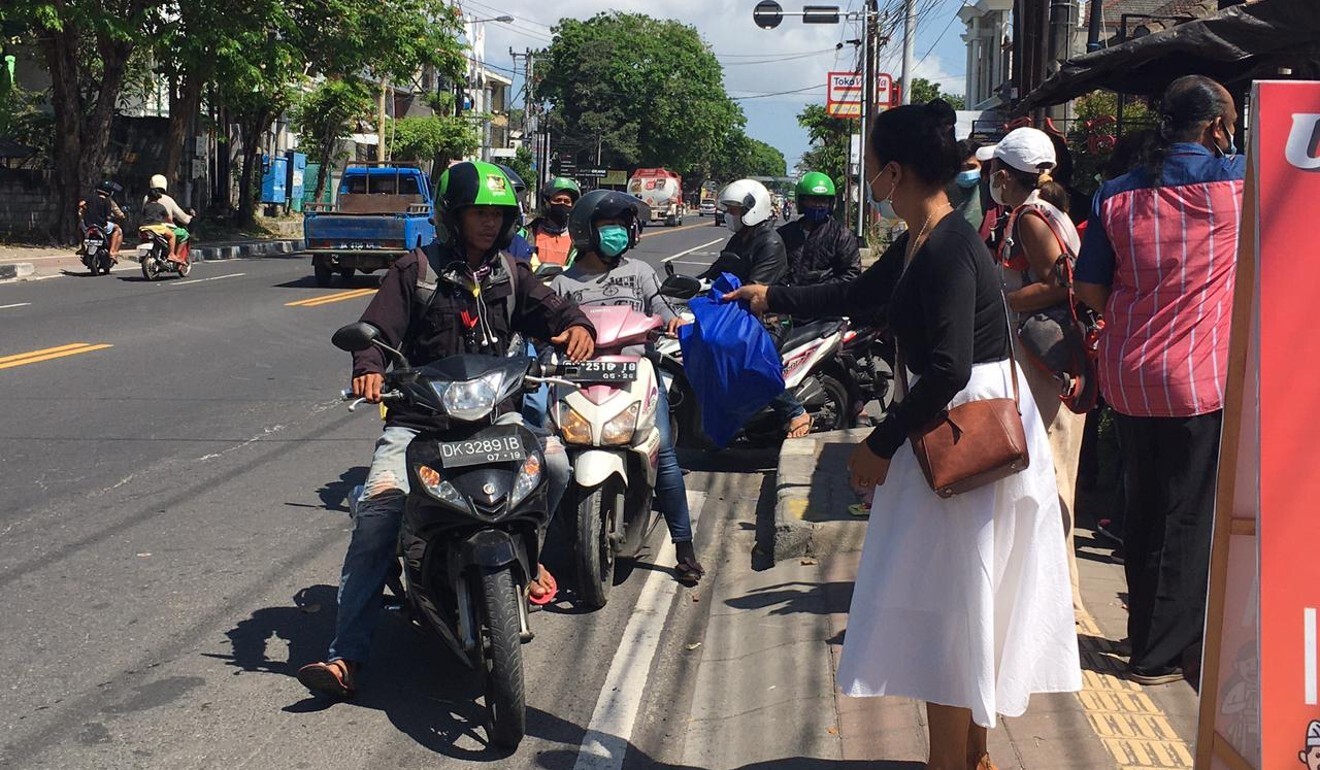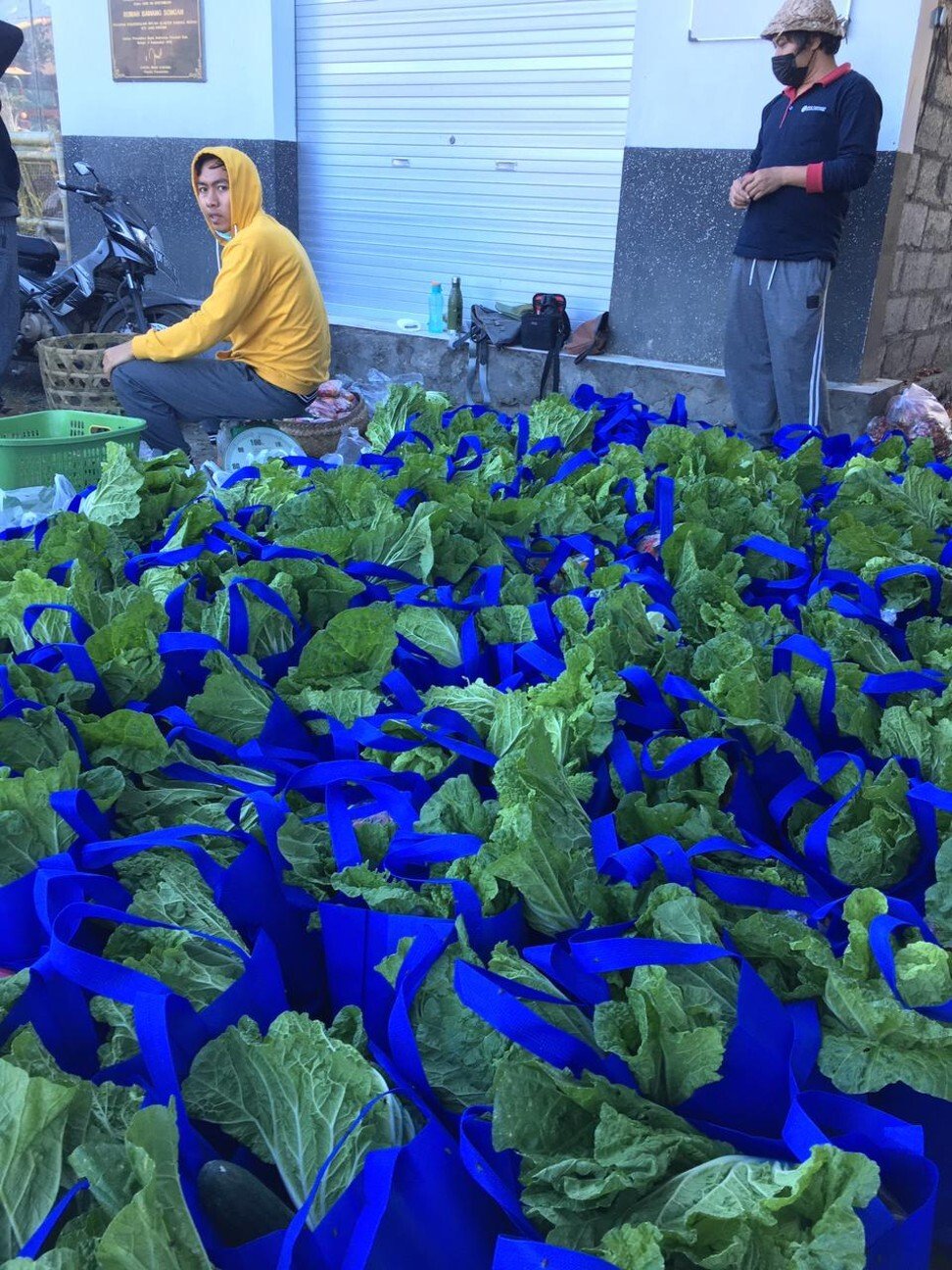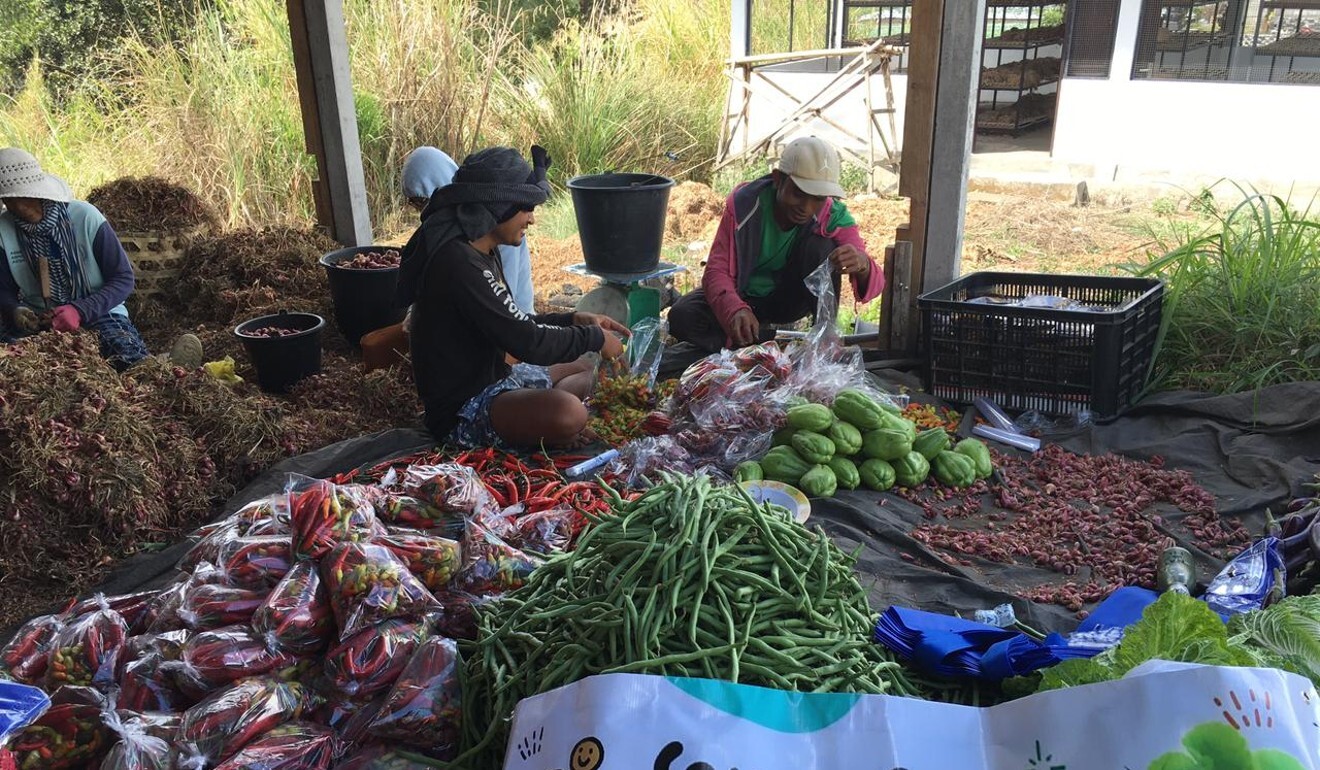
Coronavirus: Bali’s farmers hand out free vegetables as tourism dries up
- Bali’s biggest employer – the tourism sector – has been hit hard by the Covid-19 pandemic, but its no. 2 industry is proving more resilient
- Farmers have taken to giving away free produce as a way of supporting the community and boosting the profile of a profession at risk of being abandoned by the younger generation
A group of volunteers in SUVs and pickup cars loaded with reusable blue-cloth tote bags slowly made their way from rural Bali into the island’s urban centres in Ubud. The bags contained a select variety of fresh vegetables and some ground coffee, all locally grown in Kintamani, at the foot of Mount Batur, two hours away from Denpasar. The volunteers then set up stalls by the roadside to hand out the parcels for free to anyone in need.
“This charitable act is our way of showing that farmers in Bali care about the crisis that many of our brothers and sisters in other sectors of the economy are facing now,” said I Komang Sukarsana, 36, co-initiator of the “Free Veggies From Farmers” movement and owner of the Bali Arabica coffee brand.
Tourism and its related industries make up 80 per cent of Bali’s economy. With tourist numbers dropping by as much as 93.24 per cent in April last year, the local economy contracted by more than 10 per cent, forcing almost 75,000 people into joblessness. But agriculture, the island’s second largest industry at 13.5 per cent and which until recently employed almost 20 per cent of the workforce,―has proved more resilient.

But the general drop in the purchasing power of ordinary Indonesians means that market size has also shrunk.
Manis recounted a discussion with her brother on how to help their farmer friends in the cooperative, who had complained that they might have to let their crops rot in the fields if they could not find buyers for their produce.
“It inspired us to come up with a solution which would help both the farmers and the community at large. We pooled our resources among friends; some donated money, which was used to buy vegetables from the farmers in the cooperative, while others donated their crops.”

While the distribution of food parcels during times of economic crises, either by the government or by private charities, is a well-established tradition in Indonesia, fresh vegetables are not usually found among the items. Food parcels given to Indonesians typically include mass-produced staples like rice, instant noodles, sugar and factory-made snacks.
Manis said that such products completely bypassed the small-scale farmers, which is why she and her brother believed vegetables would be refreshing for a change.
“We had initially thought of cooked meal packets made with our vegetables but we wanted to encourage Balinese to go back to the practice of preparing home-cooked meals since most people are now confined to their homes,” Manis said.
Work from a Bali beach: Indonesia plans digital nomad visa
Additionally, Sukarsana wanted to raise the banner for farmers as a profession.
“In Indonesia, farming is mostly seen as a lowly occupation promising little return. Farmers are often portrayed as poor and in need of government subsidies. This is not necessarily the case with modern farmers who understand the distribution link of their own produce.”
He said he wanted it to be known that farmers did not always have to be the recipients of help but could also contribute to society in times of need.

“The pandemic,” he continued, “has shown that farmers are among the most resilient because we grow our own food and whatever happens, people still need our produce.”
While 29 per cent of Indonesian workers make their living in agriculture, fisheries and livestock, the country is fast losing its farmers. Official statistics reveal that between 2003 and 2013, Indonesia lost 5.1 million farmers as young people shunned agriculture for other professions.
US woman’s tweet shows what Bali really thinks of Western tourists
Sukarsana said that since he had launched the initiative, many young people previously employed in the tourism industry in Sanur had helped as volunteers, learning about agriculture and food production while taking home fresh produce as part of the deal.
Under the “Free Veggies From Farmers” scheme, as many as 150 parcels are distributed at a given location. Its success has inspired similar initiatives throughout Bali by farming co-operatives and small enterprises.

